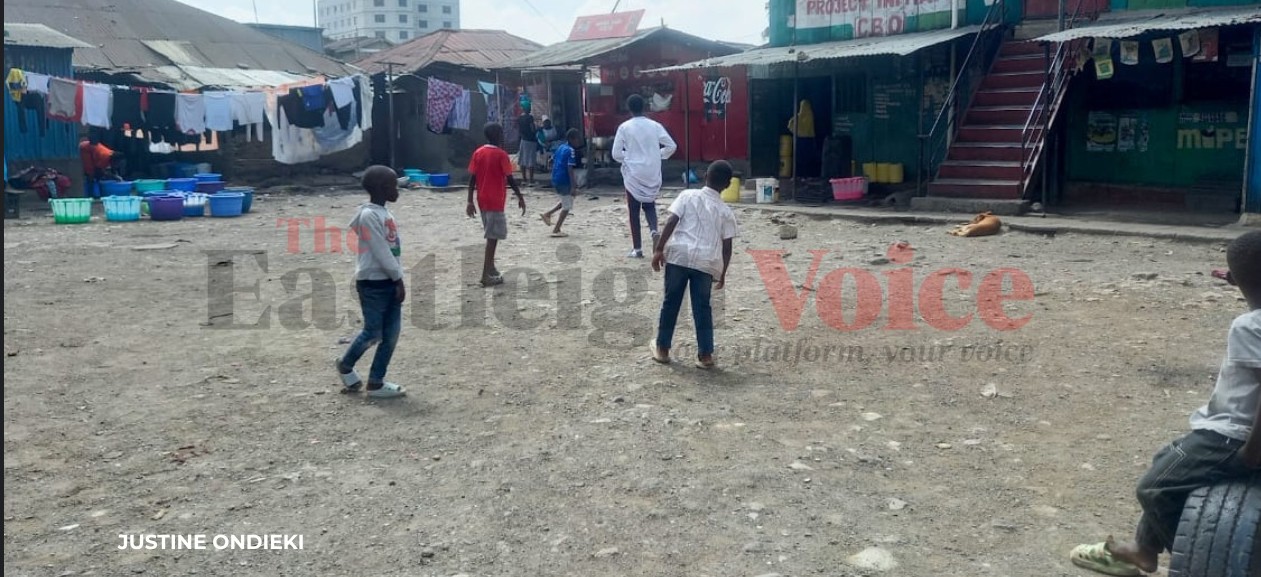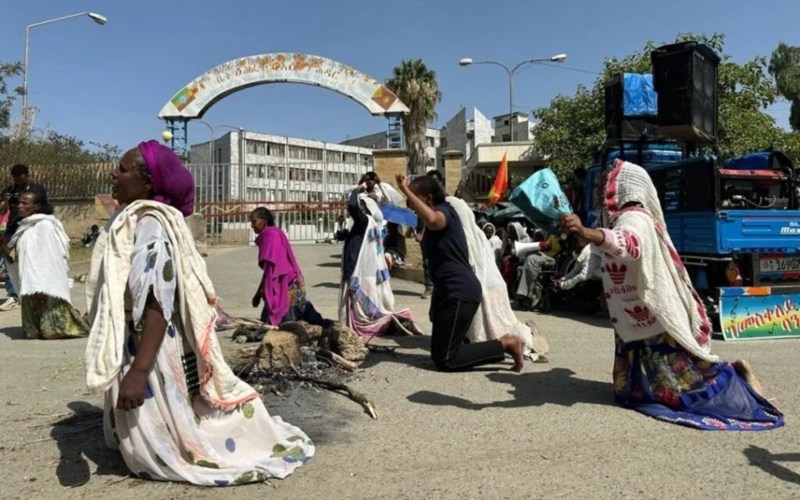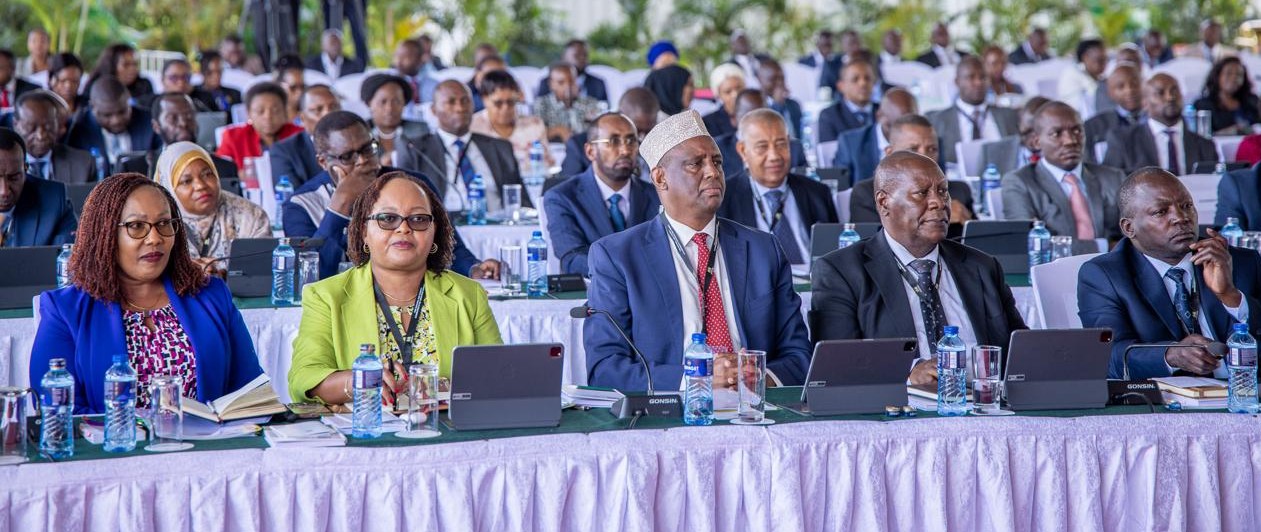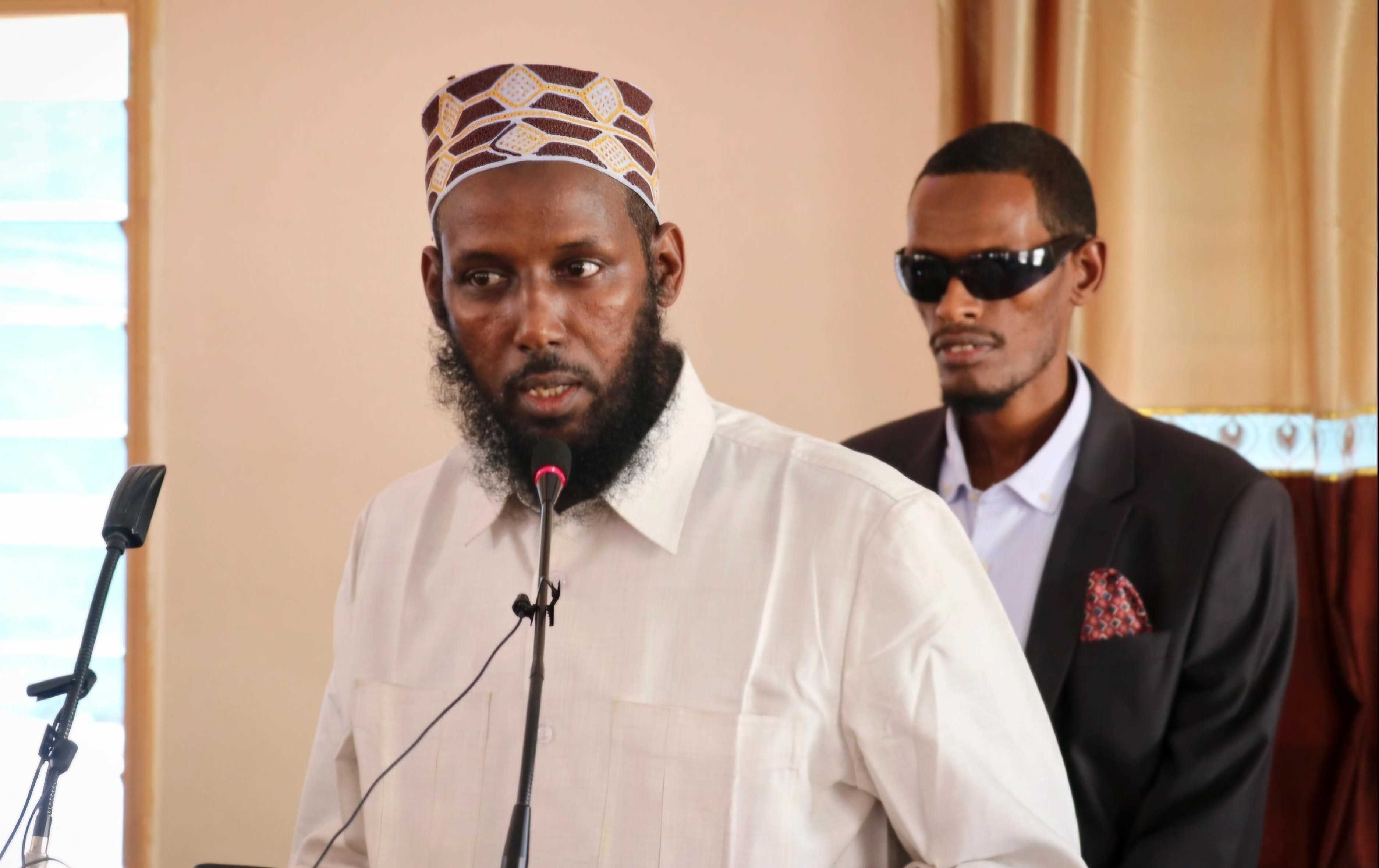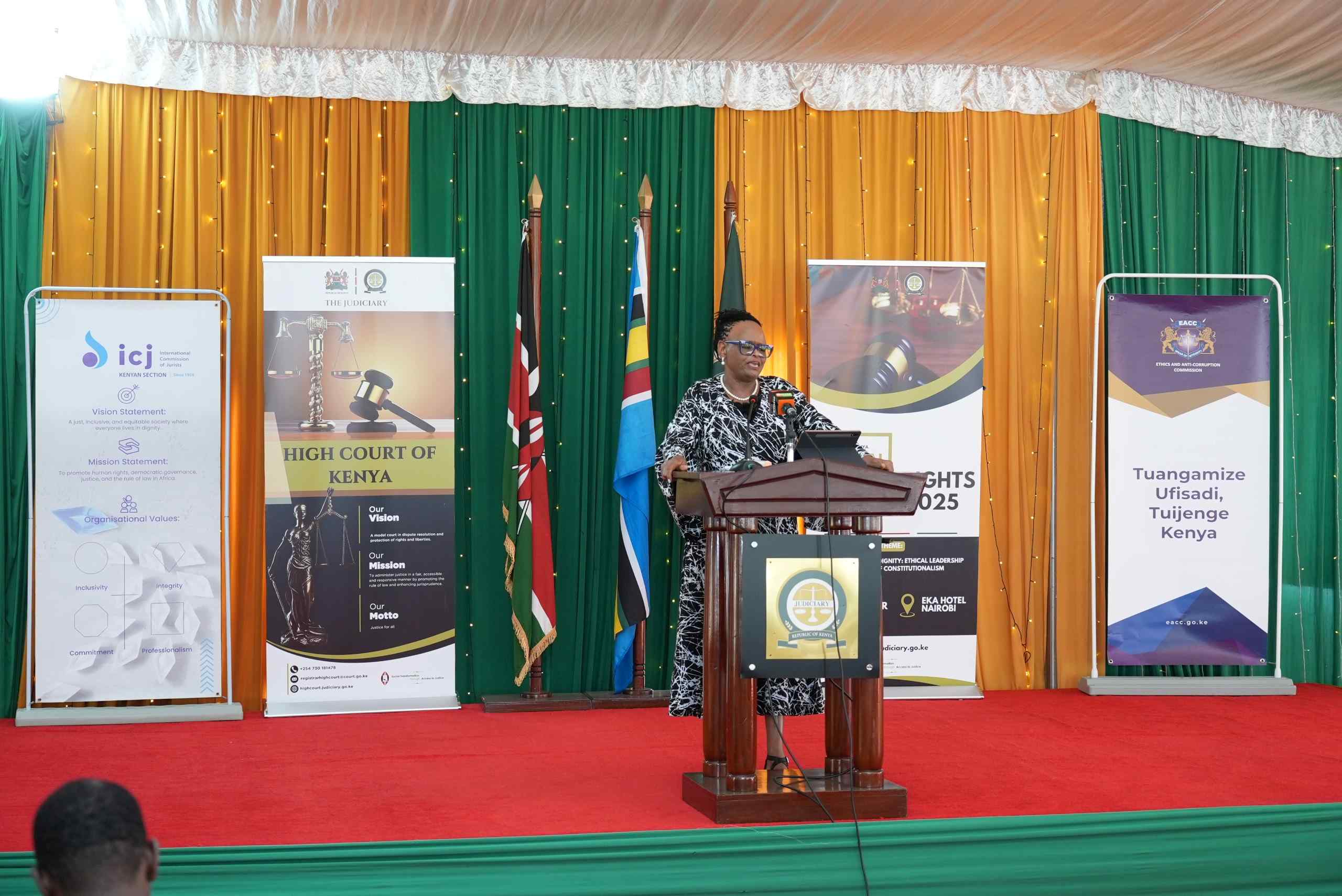Kenyans and Tanzanians unite across borders in new era of civic and democratic activism
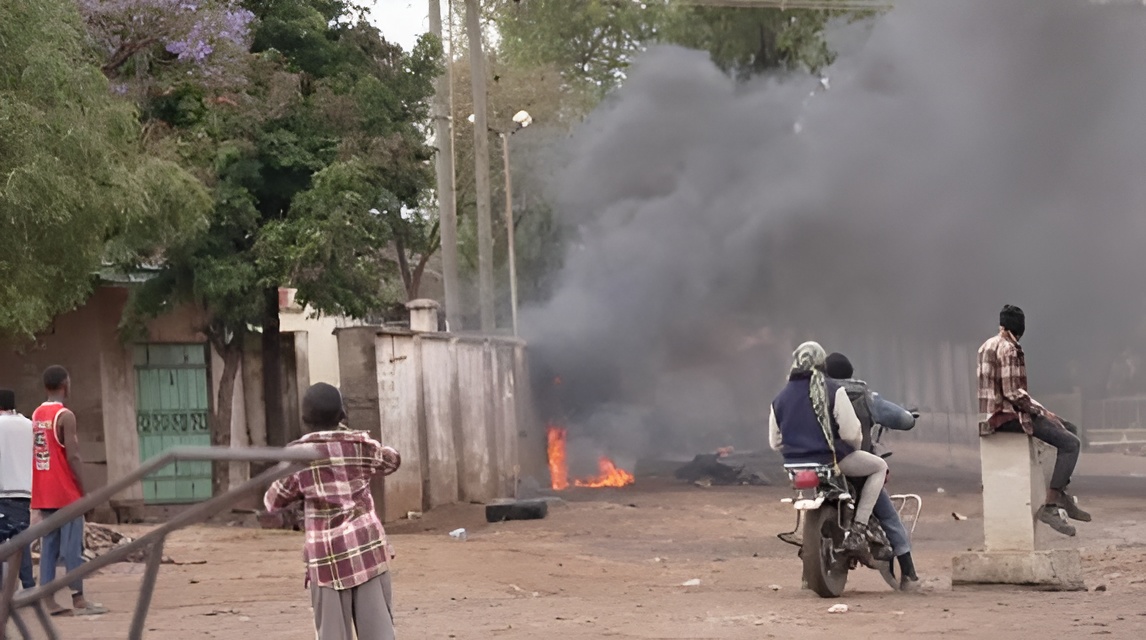
East African activists are breaking borders to challenge repression, amplify suppressed voices, and redefine democracy across the region.
Normally, the Namanga One-Stop Border Post is a bustling hub of commerce, a vital artery connecting the ports of Mombasa and Dar es Salaam. But in the days following Tanzania’s recent disputed election, it became the epicentre of a regional democratic crisis.
As protests erupted over the exclusion of opposition candidates amid allegations of vote-rigging, young activists from neighbouring Kenya tried to cross the border — not with goods, but with a message of solidarity.
More To Read
- Canada reviews Tanzania partnership after deadly post-election crackdown
- Tanzania police issue fresh warning against nationwide demonstrations
- Tanzania streets deserted as police and soldiers quash Independence Day protests
- Tanzania police dismisses social media claims of unrest amid heightened security
- HRW urges Tanzania to release detained opposition ahead of independence day
- Tanzania directs citizens to mark independence day from home amid protest fears
Their attempt, however, triggered a violent standoff. "Police have shot us with tear gas. They have shot the Kenyans across the border. The day has been bad," one Tanzanian youth protesting at the border said.
At least two Kenyan nationals were reported to have died during the clashes, alongside hundreds of Tanzanian victims.
This confrontation serves as a stark metaphor for a new reality in Africa: the fight for democracy in one country can no longer be contained within its borders. Young protesters draw inspiration from each other and unite in the hope of creating a better future.
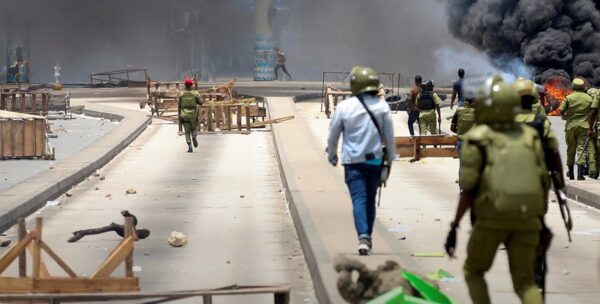 Anti-riot police patrol the streets during post-election protests in Tanzania. Opposition party CHADEMA has declared a week of mourning for civilians killed in the unrest. (Photo: Handout)
Anti-riot police patrol the streets during post-election protests in Tanzania. Opposition party CHADEMA has declared a week of mourning for civilians killed in the unrest. (Photo: Handout)
Suppressing post-election dissent
Tanzanian authorities, meanwhile, appear to rely on their well-documented playbook for suppressing post-election dissent, throttling internet bandwidth and cutting access to social media platforms like WhatsApp, TikTok Live, and Instagram Live, effectively imposing an information blackout.
Even in this digital darkness, young activists find ways to connect with like-minded individuals. Kenyan civil society and digital users have stepped in, amplifying suppressed voices.
Operating from Nairobi, Kenyan media outlets and activists acted as an external press corps for Tanzanian dissidents, sharing graphic images and videos that the Tanzanian government sought to conceal.
Veteran Kenyan journalist Yassin Juma, based in Nairobi, explained the crucial role of Kenyan activists: "While violence was ongoing in Tanzania, Kenyan activists managed to organise themselves in Nairobi, where they were meeting to tell the world what was happening in Tanzania, given that the media in the country was not speaking about the incidents and the internet was totally blocked."
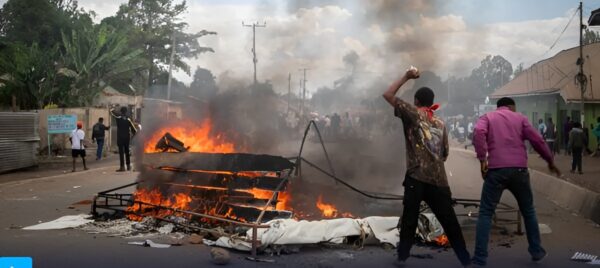 The unrest in Tanzania disrupted trade routes, triggered fuel shortages in neighbouring countries, and raised regional concerns over stability and governance. (Photo: DW)
The unrest in Tanzania disrupted trade routes, triggered fuel shortages in neighbouring countries, and raised regional concerns over stability and governance. (Photo: DW)
Global awareness
This Kenya-based amplification helped maintain global awareness of alleged human rights abuses, including reports of security forces shooting protesters and concealing bodies, ensuring the narrative did not vanish amidst the digital shutdown.
Cross-border solidarity extends beyond streets and social media; it is also evident at institutional levels.
Kenyan civil society organisations (CSOs), including the Kenya Human Rights Commission (KHRC), have lobbied regional bodies like the African Union (AU) and the East African Community (EAC) to enforce protocols on good governance and human rights, holding Tanzanian President Samia Suluhu Hassan’s government accountable.
This pressure is critical because the EAC treaty explicitly calls for adherence to "universally acceptable principles of good governance, democracy, the rule of law, observance of human rights and social justice" as a key requirement for membership.
Such advocacy shifts Tanzania’s democratic challenges from a domestic issue to one of regional accountability, compelling East African governments to confront those in power in Dodoma.
Seasoned politician, lawyer, and activist Martha Karua has been vocal on recent developments, condemning what she calls "an unholy alliance of the East African rulers."
Regional crisis
"We are staring at a regional crisis. Not an economic crisis. Not a crisis of trade, but of democracy itself. To the leaders of the EAC, you cannot speak of unity while jailing, abducting, and torturing your own citizens, and criminalising free movement of people, who are the very reasons why the Jumuiya (the Community) exists," she stated.
Cross-border solidarity, however, comes at a high cost, as shown by the harrowing experiences of those who ventured into Tanzania.
Kenyan activist and photojournalist Boniface Mwangi travelled to Dar es Salaam with Ugandan activist Agather Atuhaire to observe the treason trial of opposition leader Tundu Lissu. They were subsequently detained, allegedly beaten and tortured, and then dumped separately at their respective borders.
The allegations they raise, including accounts of sexual assault, highlight the chilling reality that political repression has become transnational.
Reports suggest security agencies are increasingly coordinating repressive operations across borders to silence critics and deter regional solidarity.
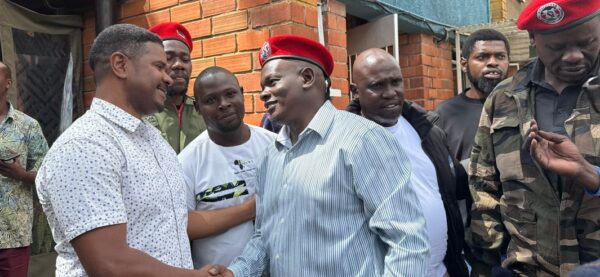 Vocal Africa CEO Hussein Khalid welcomes activists Nicholas Oyoo and Bob Njagi (right) who were abducted in Uganda just two days after arriving for a short visit and detained for 38 days. (Photo: Vocal Africa)
Vocal Africa CEO Hussein Khalid welcomes activists Nicholas Oyoo and Bob Njagi (right) who were abducted in Uganda just two days after arriving for a short visit and detained for 38 days. (Photo: Vocal Africa)
Activist Bob Njagi, who was abducted in Uganda, recounted his experience after returning to Nairobi:
"We realised that the three governments are collaborating between [Ugandan president] Museveni, our president [William] Ruto, and [Tanzanian president] Samia Suluhu. Our arrest was coordinated."
With former Kenyan Chief Justice Willy Mutunga and politician Martha Karua also detained in Tanzania and deported for attempting to observe a trial, the message from the Tanzanian state is clear: Kenya is no longer a safe base for its critics.
Abduction in Nairobi
Even self-exiled Tanzanian activist Maria Sarungi narrowly escaped an abduction in Nairobi by individuals believed to be linked to security agencies.
The Kenyan response to Tanzania’s crisis highlights a profound shift in East African politics. The region is experiencing a "democratic re-awakening," driven largely by a young, digitally native generation that views human rights violations anywhere in the community as a threat everywhere.
As Tanzanian Gen-Z protestors plan another mass demonstration in mid-December, Kenyan activists have already pledged solidarity.
Activist Njagi declared: "On December 9, they have declared it an independence day. We, also, in Kenya are declaring the total shutdown. We are going to stand in solidarity with our brothers in Tanzania. We are going to shut our borders in Kenya in our solidarity with Tanzania."
The ultimate question remains whether these forces of solidarity can overcome coordinated state repression, as the fight for democracy and accountability will shape the future not only of Tanzania, but of nations across East Africa and beyond.
Top Stories Today
